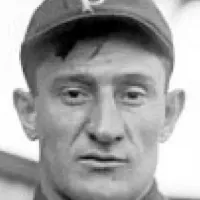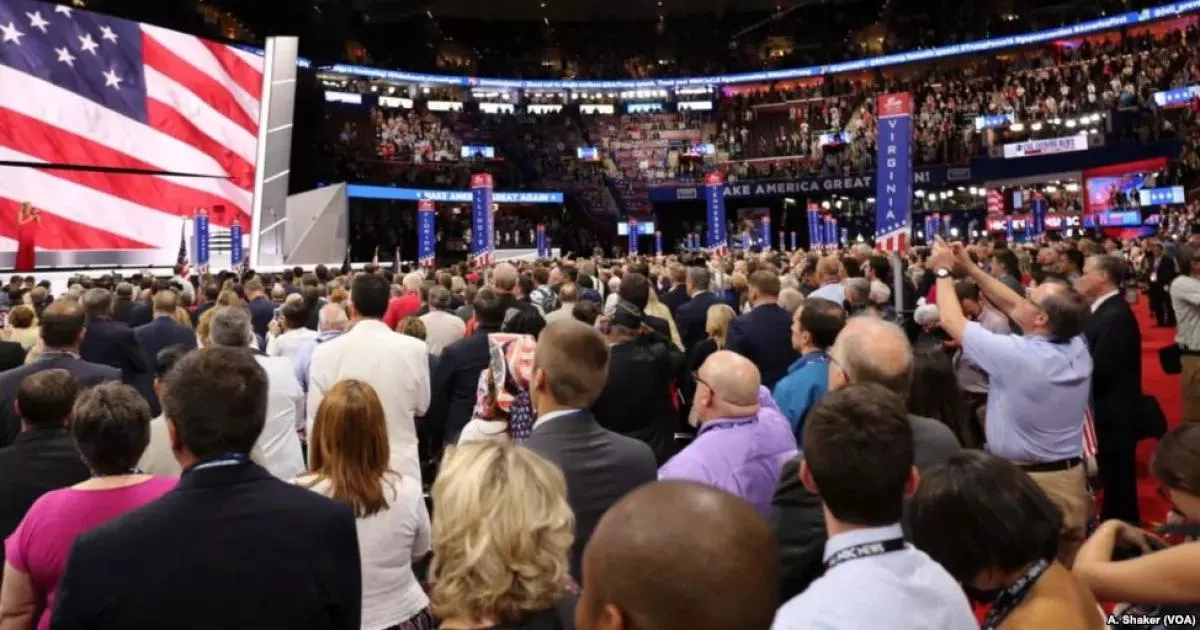The Republican National Convention (RNC), organized by the Republican National Committee, is a quadrennial event held since 1856. Its primary purpose is to formally nominate the Republican Party's presidential and vice-presidential candidates. The convention also serves to solidify the party's platform, foster unity among members, and launch the presidential campaign.
1912: 1912 Republican National Convention
The 1912 Republican National Convention saw a divisive challenge from former President Theodore Roosevelt to incumbent President William Howard Taft. Despite broader popular support, Roosevelt's challenge ultimately split the Republican vote, leading to a victory for Democrat Woodrow Wilson.
1924: 1924 Republican National Convention
The 1924 Republican National Convention, held in Cleveland, Ohio, marked several firsts: it was the first GOP convention to grant women equal representation, the first to be broadcasted on the radio, and the first time Cleveland hosted the event. The convention saw the nomination and subsequent victory of incumbent President Calvin Coolidge. Notably, it also marked the only instance where a vice presidential nominee, Illinois Governor Frank Lowden, declined the nomination.
1936: 1936 Republican National Convention
Held in Cleveland's Public Auditorium, the 1936 Republican National Convention saw former President Herbert Hoover address the delegates. The convention nominated Alf Landon and Colonel Frank Knox for president and vice president, respectively. However, the duo faced a landslide defeat against Franklin D. Roosevelt and John Nance Garner in the general election.
1940: 1940 Republican National Convention
Making history as the first national convention of any party to be broadcasted live on television, the 1940 Republican National Convention utilized an early version of the NBC Television Network to reach viewers in New York City, Philadelphia, Schenectady, and Albany.
1964: 1964 Republican National Convention
The 1964 Republican National Convention in San Francisco highlighted the increasing influence of primaries in the nomination process. Senator Barry Goldwater from Arizona secured the nomination over establishment favorites like Pennsylvania governor William Scranton.
1972: 1972 Republican National Convention
The 1972 Republican National Convention marked two significant events. First, Pat Nixon became the first First Lady, Republican or Democrat, since Eleanor Roosevelt to address the convention delegates, setting a precedent for future conventions. Secondly, the convention banned the practice of nominating "favorite son" candidates unless requested by at least five states, a move that streamlined the nomination process and consolidated support behind a single candidate.
1976: 1976 Republican National Convention
The 1976 Republican National Convention in Kansas City witnessed a close contest between incumbent President Gerald Ford and challenger Ronald Reagan. Despite Reagan's growing popularity and challenge to Ford's incumbency, Ford ultimately secured the nomination. The convention highlighted the internal divisions within the Republican party, putting pressure on Ford to unify the party for the general election. This convention was the last one where the outcome of the Republican nomination remained uncertain.
1992: 1992 Republican National Convention
The 1992 Republican National Convention in Houston was marked by Pat Buchanan's controversial speech, which was seen as overly conservative and potentially alienating to moderate voters. This contributed to the perception of a divided party, impacting the re-election campaign of then-incumbent President George H. W. Bush.
1996: 1996 Republican National Convention
Held at the San Diego Convention Center, the 1996 Republican National Convention saw further internal divisions as moderate figures like California governor Pete Wilson and Massachusetts governor William Weld unsuccessfully attempted to remove the Human Life Amendment from the party platform. This event was the last Republican National Convention to take place in a convention center.
2012: Delegate Allocation Changes
Starting in 2012, the Republican Party implemented a new system for allocating pledged delegates to each state, aiming for a fairer representation based on population and congressional districts.
2016: 2016 Republican National Convention
The Republican Party returned to Cleveland for the 2016 Republican National Convention, hosted at the Quicken Loans Arena. The choice of Ohio, a state crucial for Republican presidential victories, aimed to capitalize on its historical significance and potentially sway voters in the state.
2020: Rule 40(b) and Candidate Nomination
During the 2020 Republican National Convention, Rule 40(b) played a crucial role in the candidate nomination process, requiring candidates to secure a majority of delegates from at least five delegations to be eligible for the presidential nomination.
2020: Delegate Allocation for Territories
In 2020, the Republican National Convention continued to refine its delegate allocation system, granting a fixed number of pledged delegates to U.S. territories like American Samoa, Guam, Northern Mariana Islands, U.S. Virgin Islands, Puerto Rico, and Washington, D.C., ensuring their representation in the nomination process.
2020: 2020 Republican National Convention
In 2020, the Republican National Convention, like the Democratic National Convention, was held as a short online program due to the COVID-19 pandemic.
2020: Bonus Delegates and Political Impact
The 2020 Republican National Convention highlighted how the allocation of bonus delegates, based on a state's support for Republican candidates, can significantly influence the nomination process, as seen in the contrasting examples of California and Texas.
Mentioned in this timeline
California is a U S state on the Pacific Coast...
Puerto Rico is a self-governing Caribbean archipelago and island that...
American Samoa is an unincorporated territory of the United States...

Washington D C is the capital city and federal district...
The National Broadcasting Company NBC is a major American commercial...

San Francisco is a major commercial financial and cultural hub...
Trending

53 minutes ago Killian Hayes inks 10-day contract with Kings, reviving NBA career.

53 minutes ago Honus Wagner T206 baseball card fetches millions at auction, breaking records again.
54 minutes ago Iowa Hawkeyes face Wisconsin Badgers: Predictions, odds and keys to the game.

54 minutes ago Canadians face gastro outbreak in Cancun resort; hotel demands NDA for treatment.

54 minutes ago Bridgeman Leads McIlroy by Six Shots at Genesis Invitational: Inaugural Win?

2 hours ago Isaiah Joe to start for Thunder; Williams comes off bench, joins first unit.
Popular

Jesse Jackson is an American civil rights activist politician and...

Barack Obama the th U S President - was the...

Bernie Sanders is a prominent American politician currently serving as...

Michael Joseph Jackson the King of Pop was a highly...

Ken Paxton is an American politician and lawyer serving as...
WWE Raw a professional wrestling television program by WWE airs...
